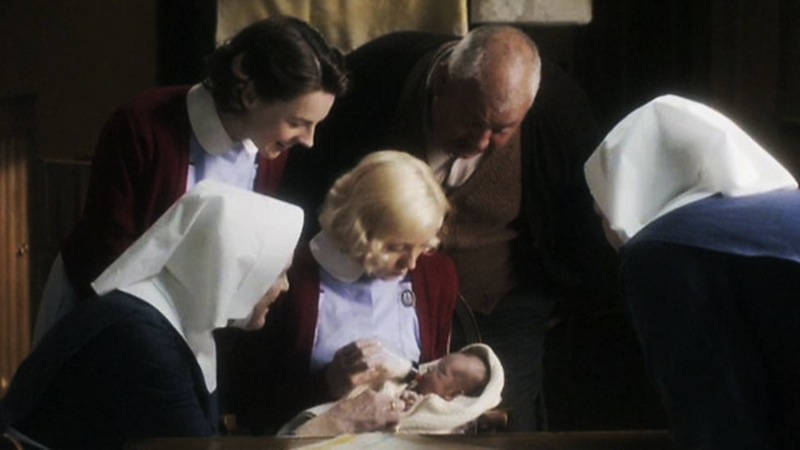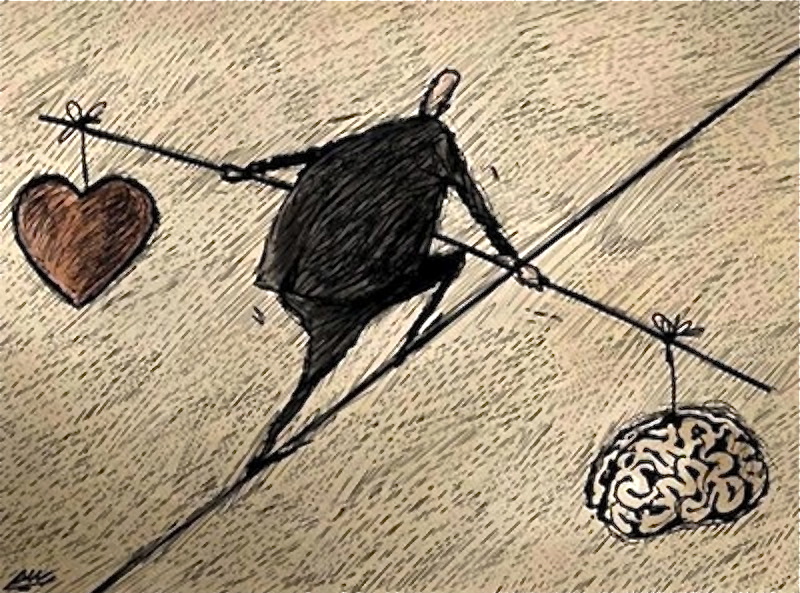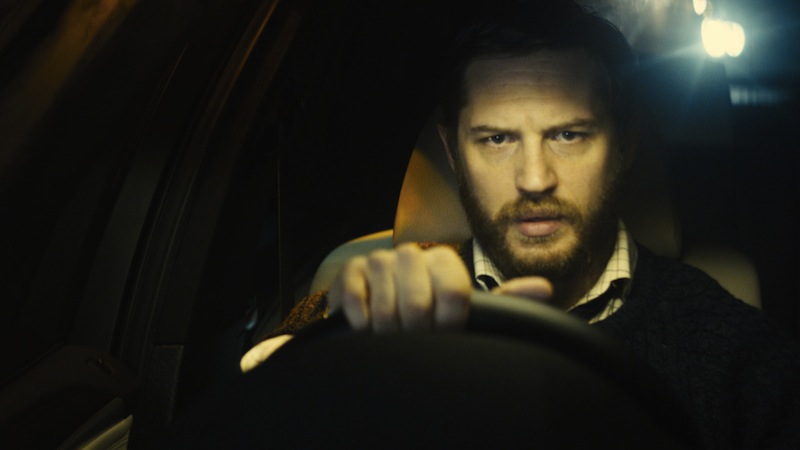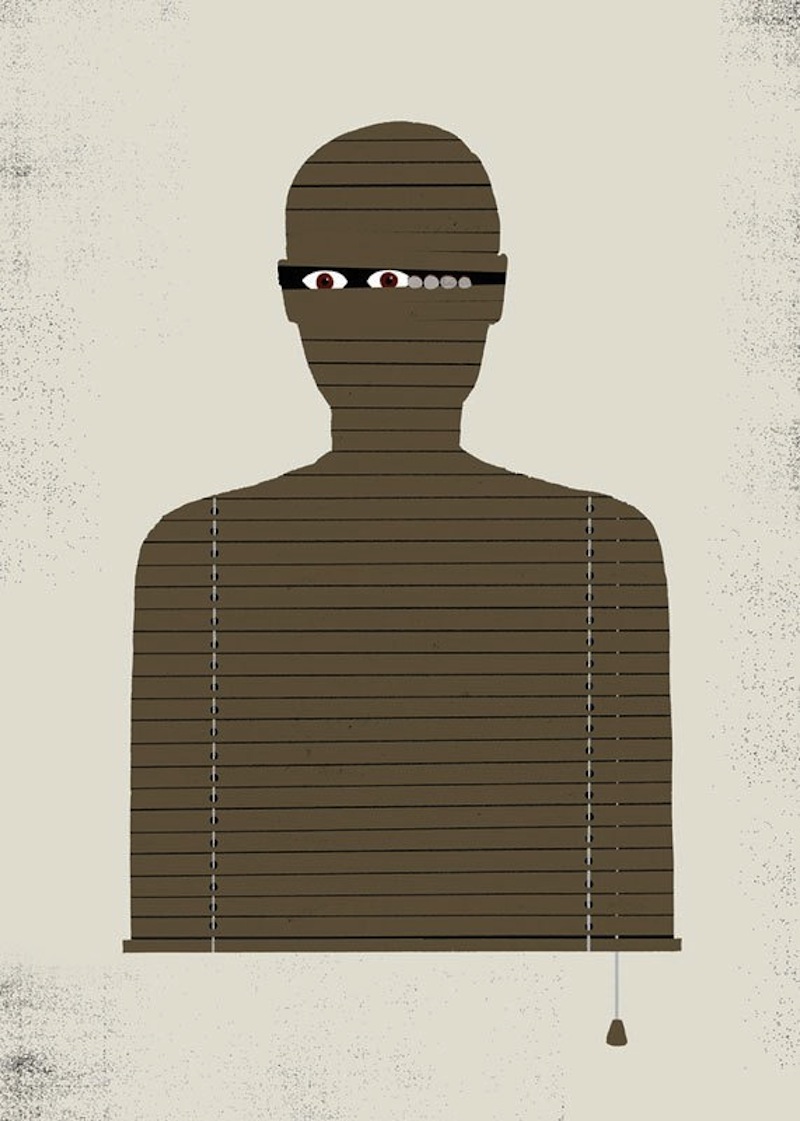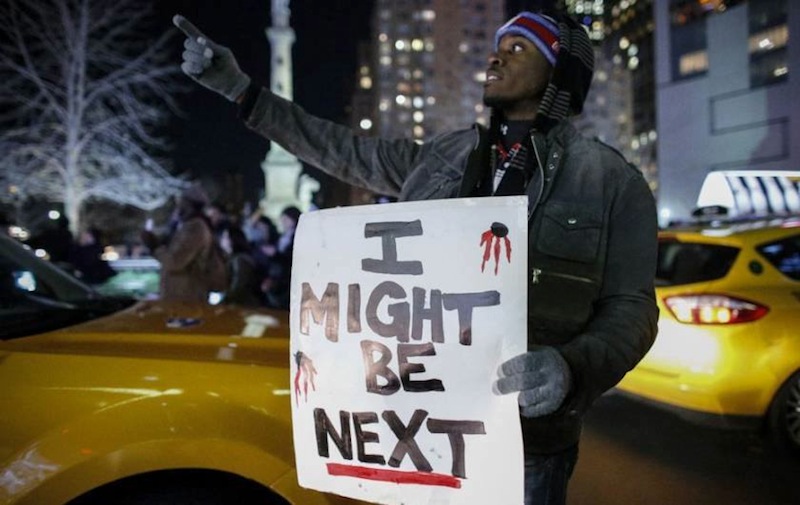 Imagination Can Lead Us to Hate or to Love
Imagination Can Lead Us to Hate or to Love
When reading many of the calloused, angry comments posted on internet articles about the Ferguson verdict, the death of Eric Garner, and the #BlackLivesMatter protests, my mind kept going back to one of Samuel Taylor Coleridge’s most famous poems, “This Lime Tree Bower My Prison.” It must sound odd to couple the reading of cruel internet comments with a 1797 poem from a British Romantic poet—but I am convinced that if more commenters would take time to read, contemplate, and act upon the deeply Christian assertions of this poem, perhaps conversation would be more kind, productive, and most importantly, loving.
This is because Coleridge’s poem is a short narrative that instructs us how to follow what Christ calls the second most important commandment, to “Love your neighbor as yourself” (Mark 12:31). And the poem also shows us that, in order to truly love our neighbors, we must also learn to effectively use our imaginations.
In a note directly before the poem, Coleridge tells us that his dear friends, Charles and Mary Lamb, had come from London to visit him in the Lake District. Shortly before their arrival, the poet had an accident and injured his leg, preventing his going on preplanned outings with his visiting friends, leaving him alone to ponder his misfortune. The poem has a wonderfully whiny start as Coleridge shows us the power that emotion (in this case, bitterness and anger) has on our perception: “Well, they are gone, and here I must remain,/ This lime-tree bower my prison!”. Although a lime-tree bower (in the Lake District, no less) is traditionally associated with the idyllic rather than the carceral, the pouting poet sees it through the distorted lenses of disappointment and resentment. He becomes even more dramatic as he fumes over the fact that these are friends that he may never more “meet again”—yet they have chosen to leave him to his prison while enjoying the beautiful settings of the countryside “of which I told.”
Coleridge’s self-pity commingles with near hatred of his “friends” as he imagines all of the fun things that they are doing and the “beauties and feelings” that they are experiencing without him.
But once the narrator begins to truly imagine his friend’s faces and to especially remember Charles’ great love of nature (which he has longed for while in the city), his feelings abruptly change. The poet then thinks fondly on the “gentle heart” of his friend “to whom no sound is dissonant which tells of Life.” Coleridge remembers that he loves his friend deeply and begins to empathize with him as soon as he is able to envision himself in his friend’s place, enjoying nature. He goes on to say that, “A delight/ Comes sudden on my heart, and I am glad/ As if I myself were there!”. And once his imagination has somehow dispelled his hatred and anger, he can see that the lime-tree bower that he is sitting in is actually beautiful and soothing. His perception has shifted dramatically, and he is now able to both empathize with another—and to see Reality more clearly.
Although Coleridge was not sharing these experiences with his friends, he was able to imagine as if he was—and his love for them became selfless rather than self- serving. But Coleridge, unlike fellow Romantic poet, William Blake, does not deify the imagination. In Coleridge’s writing, there is a deep connection between the spiritual realm and the imagination—and the imagination cannot be used correctly to enable us to see more clearly until somehow connected to that larger spiritual reality. In “This Lime-Tree Bower,” we see that the imagination can be either destructive or edifying; it can lead to hatred or to love.
This brings me back to the venomous comments that were all over the internet in response to the sad events of late November. After reading many of these comments, I am convinced that there is a tragic deficit of the right kind of imagination. We need to learn how to imagine just as we need to learn how to read. Of course, the kind of racial stereotyping/profiling that made its way into some angry comments is a type of imagining, but it is the result of a constricted imagination, limited mostly by fear of the difference.
In reading comments in response to the Ferguson and Garner verdicts, I was discouraged to see so many Christians with constricted imaginations. Regardless of whether one agrees or disagrees with the two verdicts, there is still a responsibility to listen to the stories of those who are hurting in order to understand why they are hurting. Coleridge was able to imagine and empathize with his friend, Charles, because his imagination had previously been fed with the truths of Charles’ experiences and feelings through listening to his story and spending time with him (thus understanding his “heart”). White American Christians now have an opportunity to listen to the stories of African American brothers and sisters in order to know how to imagine their experiences more truthfully. Only then can we begin to empathize.
As we all know, the protests that followed these two verdicts were not just about the verdicts themselves; they were about lamenting the fact that the two cases were not seen as important enough to go to trial, which perhaps reflects a belief that black lives have less value. The protests are also visible laments that the stories of racial profiling are silenced with the dismissive “race card” label rather than being heard and believed.
Christian hip hop artist, Lecrae, posted many comments on his Facebook and Twitter pages in response to the verdicts; he also wrote an article for Billboard and made his way onto the streets of Atlanta in order to join the protests while helping to keep the peace. But as he did this, he was continually attacked by many fans on his Facebook page for being “divisive” and told he that he needed back off and not speak about injustice because he was a Christian musician. Interestingly, Lecrae’s posts were not overtly about whether he thought Darren Wilson was innocent or guilty--but mainly about the pain and frustration his community felt because of the lack of communication, care, and understanding in response to their voices concerning the frequent possibility of injustice.
Some of the responses on Lecrae’s Facebook page did eventually become more empathetic when he finally posted some of his own story of interactions with the police—and his fans took the time to listen. He explained that, “Part of my testimony is how I was harassing people with a pellet gun as a 13yr old and was apprehended by the police. But I’m still ALIVE! I wasn’t shot down. Those cops did a good job. One officer decide not to arrest me years ago but instead challenged me to get in my bible.” After thanking God for “His grace,” he went on to explain that he has still been pulled over without cause and profiled on numerous occasions.
These specific examples from Lacrae’s story enabled his readers to imagine his experience. And many other young African-American men shared some of their own experiences on Lecrae’s Facebook wall(most, if not all, had shared experiences similar to Lecrae’s). When Lecrae’s story was finally heard, the imaginations of many of his fans began to enlarge rather than constrict. And in these moments, they were able to love their neighbor(s) in a much more substantive, rich way.
As novelist Michael Chabon explains, “To me, imagination is the key to morality. If you can’t imagine yourself as someone else, to walk in their skin, you’re more likely to hurt them or demean them or legislate against them. The golden rule depends on the power of imagination.”
(Photo taken by Travis Terrell Harris, pictured in the photo)
 He came into my office as he often does, or as I often do to him in return, to avoid actual work, to talk about the fun stuff—the difference in Raymond Carver after Gordon Lish, how the Pinckney Benedict story “Mercy” is perfect for our students—and/or complain about the unfun stuff, also fun in its way. We work in the same pod and his office is directly across from mine. We’re not rivals; he’s fiction and I’m creative non. Truly, we’re friends.
He came into my office as he often does, or as I often do to him in return, to avoid actual work, to talk about the fun stuff—the difference in Raymond Carver after Gordon Lish, how the Pinckney Benedict story “Mercy” is perfect for our students—and/or complain about the unfun stuff, also fun in its way. We work in the same pod and his office is directly across from mine. We’re not rivals; he’s fiction and I’m creative non. Truly, we’re friends.







